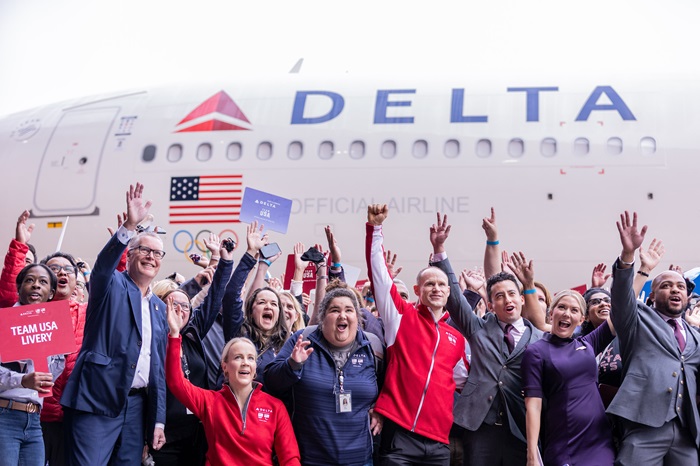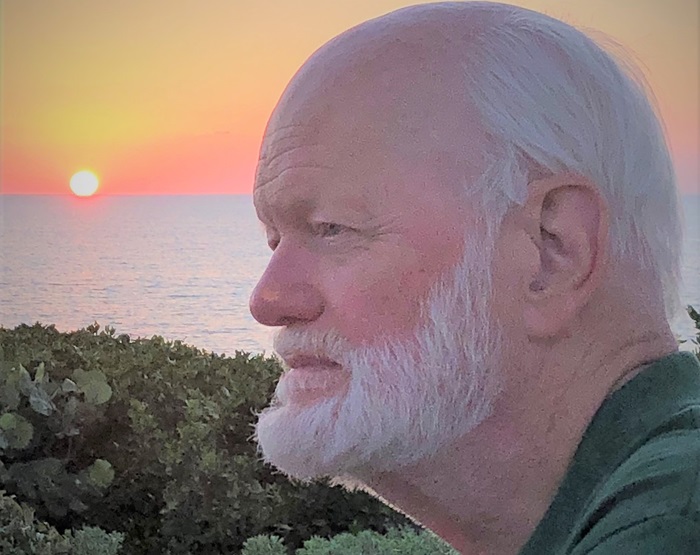Tech Valley Shuttle Pioneers ‘Transportation as Rescue’ for the Underserved and Ignored
By Chris Benguhe, RaeAnne Marsh and Elaine Pofeldt | January 23, 2025 11:35 am
Founder Trent Griffin-Braaf tapped his own lived experiences to build his life-changing company.

“I’m the founder of Tech Valley Shuttle and we are a community-based transportation supplier, meaning we offer services that uplift individuals who lack transportation options,” Trent Griffin-Braaf explains in our exclusive interview with him for the DACSC. And everyone would agree that what he’s doing is a good thing, right?
But then he shares details of what that means — and it’s no less than life-changing for individuals. Services include “rescuing” a mind-boggling 25,000 pounds of food five days a week and “repositioning” it to food banks in the area. Other services he describes also touch people’s lives in ways that truly “rescue” them as well, such as providing “free community-based shuttles at least four times a year to help individuals get visits who are incarcerated throughout New York State” — which actually helps reduce recidivism by 12% with each visit someone gets. Those are on top of the Driven to Work program that was the starting point of his business: “We actually work with employers and municipalities and we get people to and from work every single day where transportation tends to be a barrier.”
Then genesis story is equally powerful — and personal. “We originally started as a hotel-based transportation company because that was the only world I knew following incarceration,” he explains, sharing that he had served a 12-year prison sentence as a youth and so had very limited work experience.
“Essentially, I started off cleaning toilets and driving a shuttle for a hotel and one day started a shuttle service that was supposed to help hotel goers. But around two years in, we identified the poverty report in the area and transportation and poverty went hand in hand. And so that was kind of my aha moment where I thought, “Maybe we could put a little dent into this.” And then as we’ve got into it, we really got into it.”
Trent’s other examples of what he’s done since he “really got into it” span services to individuals and communities — all having the personal imprint of lived experiences of his own or members of his team. “I’ve never experienced homelessness, food insecurity, but I’ve had individuals on the team who have, and just hearing their experiences and the things they went through really, really shaped my vantage point.”
And he took what we see as a perfect Social Capital approach. “I said, ‘Hey, the premise of business is solving a problem. This is a problem; how can we solve it?’ And then every other problem from there, we started to look at it in that lens and then just said, ‘Hey, the worst that could happen is it doesn’t work. And the best that could happen is we can help other people. Let’s give it a shot.’”
Trent finds people often assume his company is nonprofit, but explains that not being limited by parameters tied to specific grants has “actually given us a lens to build relationships with employers, which is huge for what we do, but it’s even bigger for the people that I help uplift, which I’m sure we’ll dive into a little bit more.”
Another deeply thought-provoking insight into recognizing a need and developing a solution is Trent’s approach to DEI. “I believe in true diversity, and I don’t think diversity is having one female or one person of color in the mix in some way. I believe that diversity looks like having people of all age groups, people of all ethnic backgrounds, people of all social aspects of life, people of all sexual genders and orientations, all, all of that … so I could learn, and I did learn. But then what I also started to learn was that a lot of these backgrounds, a lot of these individuals, especially underserved or people who tend to be under employed, are never taught how to be successful in the workplace.”
That awareness led him to develop his other passion project, Roadmap to Success, built with full mindfulness of the population it is aimed at. “We tend to see individuals go from poverty-based jobs to poverty-based jobs because they’re not focused on the personal development aspect of things throughout that time.” The program is trademarked and, he says, “is being accredited as a true curriculum through a lived experience curriculum” offered inside the New York Department of Corrections.
“I actually work with some of the largest employers in the state as well as one of the largest public transportation companies in the Northeast. And I show them how to have success with these underserved populations through the Roadmap to Success program” — which is built on the core foundation of listening to them and seeing them as more than whatever job they were filling. “And then from that, I’m able to help so many people who are coming home from incarceration, homelessness, et cetera, or people with disabilities.”
What he shares about how he’s building his program not only enriches our understanding of challenges facing severely underserved communities but offers very hopeful examples of people-focused business in action. Click on the link below to hear Trent tell his powerful story.




